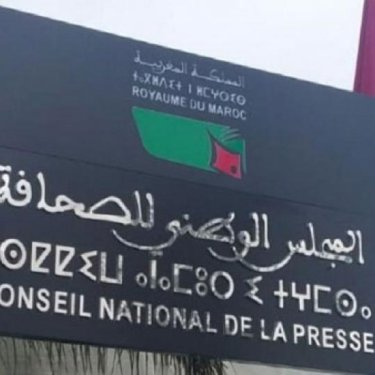Plan to scrap Press Council would further erode media independence in Morocco

Reporters Without Borders (RSF) condemns the Moroccan government’s approval of proposed legislation that would replace the National Press Council, a self-regulatory body that gave Morocco’s media a degree of independence. The authorities clearly want to tighten their grip on the media, RSF says.
Established as an advisory body under the communication ministry’s aegis in accordance with 2011 Constitution, the National Press Council’s creation ended direct government supervision over the media sector.
When its mandate expired in October 2022, new electionsshould have been organised, as provided for in the Council’s statutes. Instead, the authorities chose to extend its mandate as an “exceptional and temporary solution” on the grounds that “the particular situation” did not allow the election of new members.
Now, six months later, Prime Minister Aziz Akhannouch’s government has approved a bill that would transfer the Council’s prerogatives to a temporary committee including all of the Council’s members except the Moroccan Federation of Newspaper Editors and the Moroccan Union of Journalism (which is affiliated to the Moroccan Union of Labour). The representatives of these two organisations were the only members to demand the reelection of the Council’s representatives. The others were opposed.
Observers regard this unexplained decision as the sign of a clear desire on the part of the government to regain control over the media and end all self-regulation. They see it as a step backwards that calls into question the Council’s purpose as an autonomous entity responsible for media “self-regulation.”
Although its achievements have been minimal, a media expert in Morocco said the Council had helped to maintain a degree of independence for journalists, especially with regard to allocatingpress cards and drawing up a code of ethics.
“Replacing the National Press Council without holding an election as provided for by law is one more blow to press freedom in Morocco. Questioning the Council’s existence at a time of increased persecution, exemplified by the unfair and unjustified imprisonment of journalists Omar Radi, Soulaiman Raissouni and Taoufik Bouachrine, is alarming in more ways than one. It clearly reflects a desire on the part of the authorities to achieve total control over the media. But they have nothing to gain by stifling the country’s last free and critical voices. The authorities should respect Morocco’s constitution and the National Press Council’s autonomy.
The new temporary committee’s planned prerogatives would include reviewing regulatory proposals, including one under which a deposit of the equivalent of 100,000 euros would be a requirement for the creation of any new media outlet, in effect barring all but the wealthiest from access to journalism.
The Moroccan Federation of Newspaper Publishers and the Moroccan Press, Information and Communication Association have criticised what they call "an unconstitutional bill” signalling “a major decline in the independence of the press.”
Many of Morocco’s political parties have also condemned the government’s plan. The opposition Justice and Development Party called it a “new stage of regression, that calls into question the country’s main democratic achievements.” Rachid Hamouni, the head of the Progress and Socialism group in the lower house of parliament, described is an “anti-democratic” measure that “kills free, independent, responsible and effective press” in Morocco. Karim Boukhessas, a journalist with the AlAyam24news website, said it sounded like a death sentence for Morocco’s media
The government’s bill is still pending parliamentary approval. It is not yet known when parliament will examine it.
